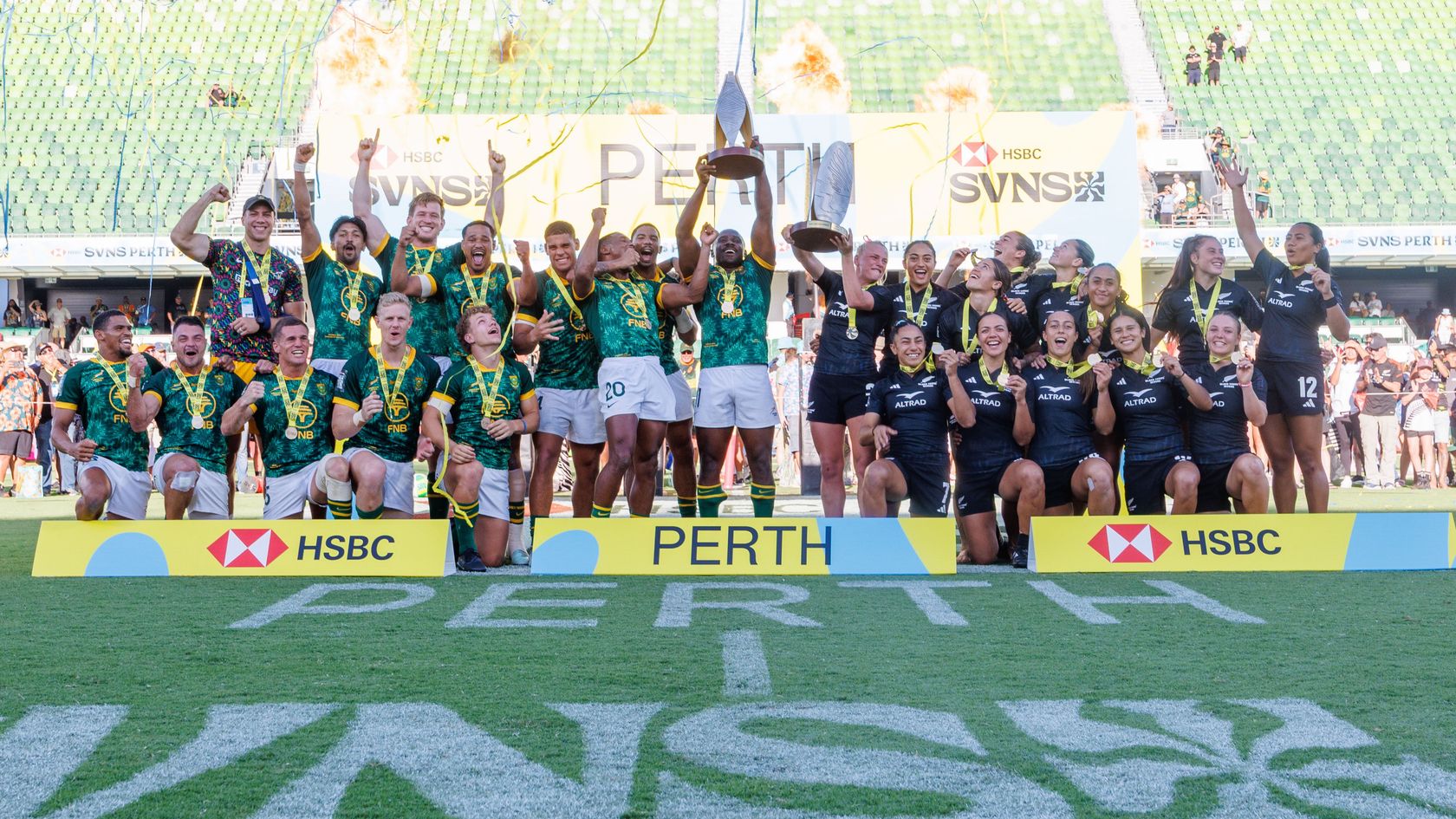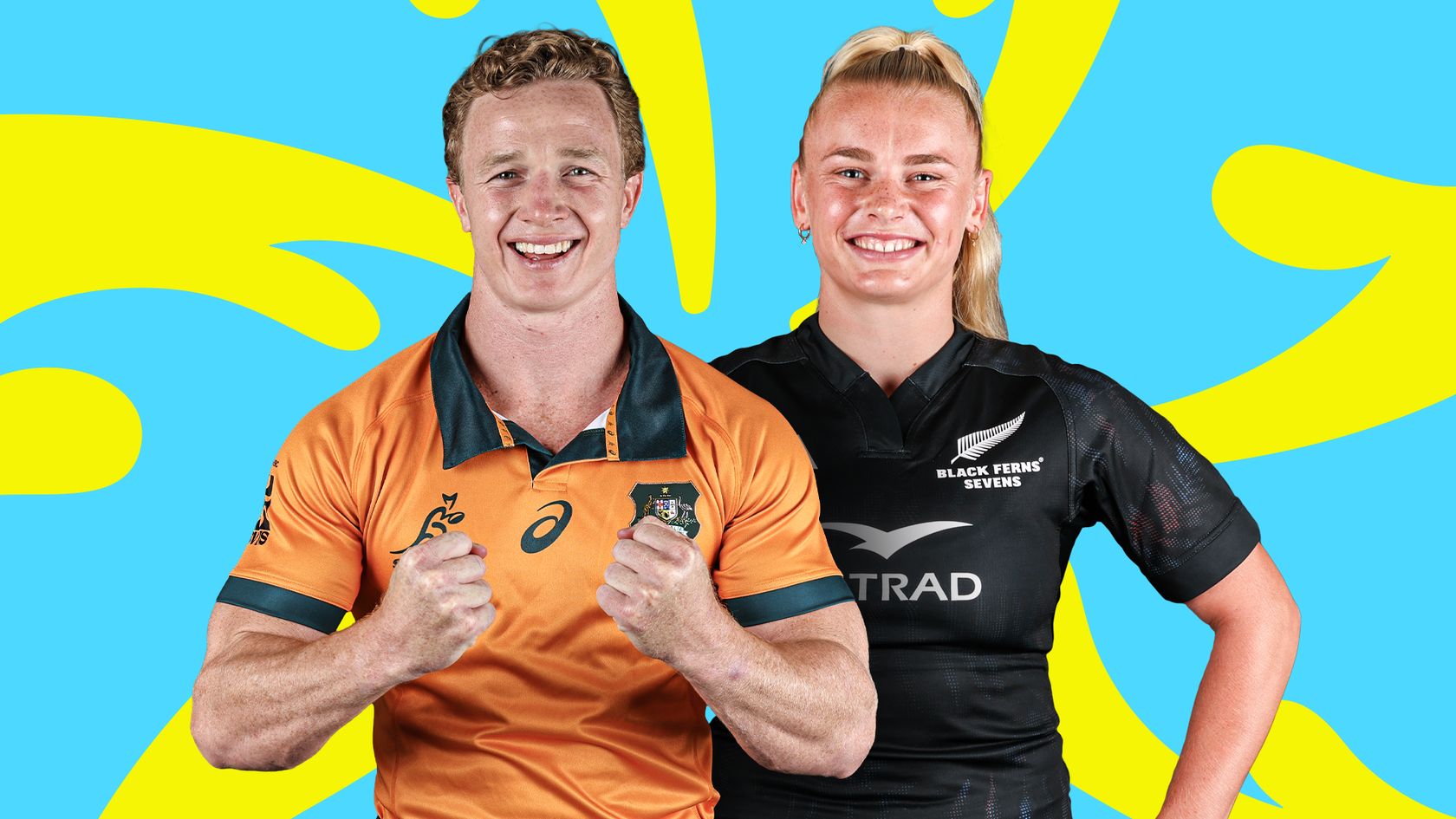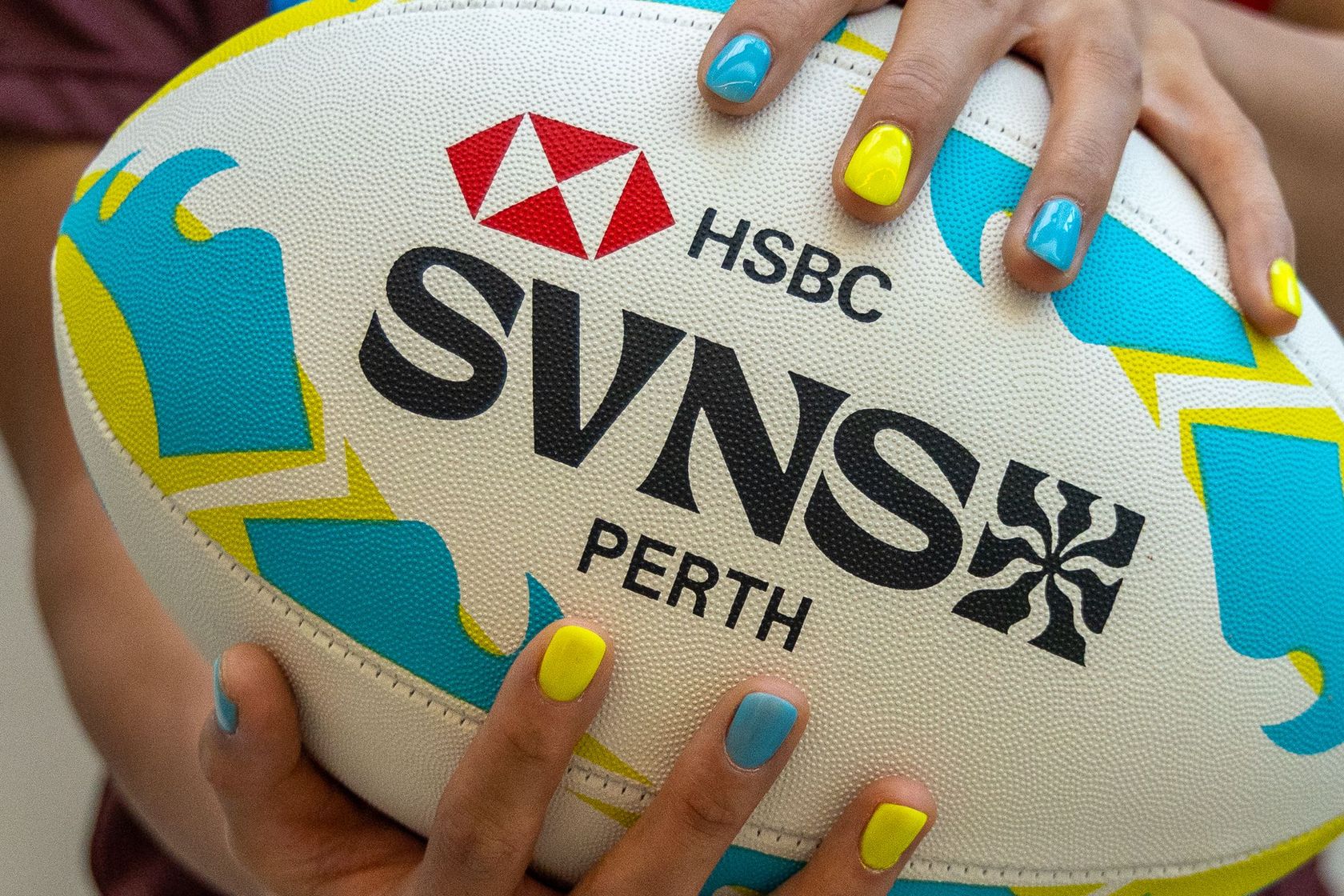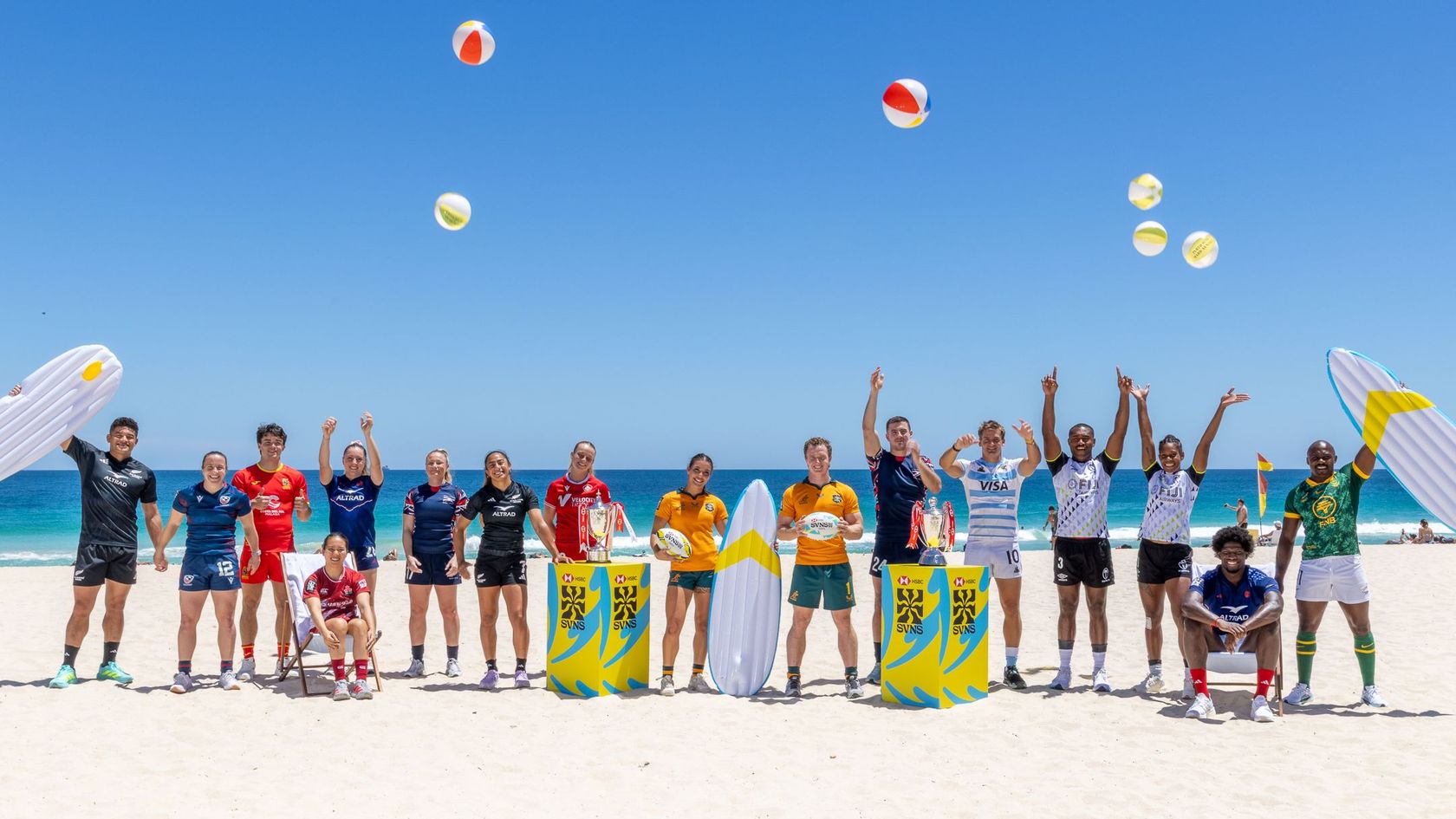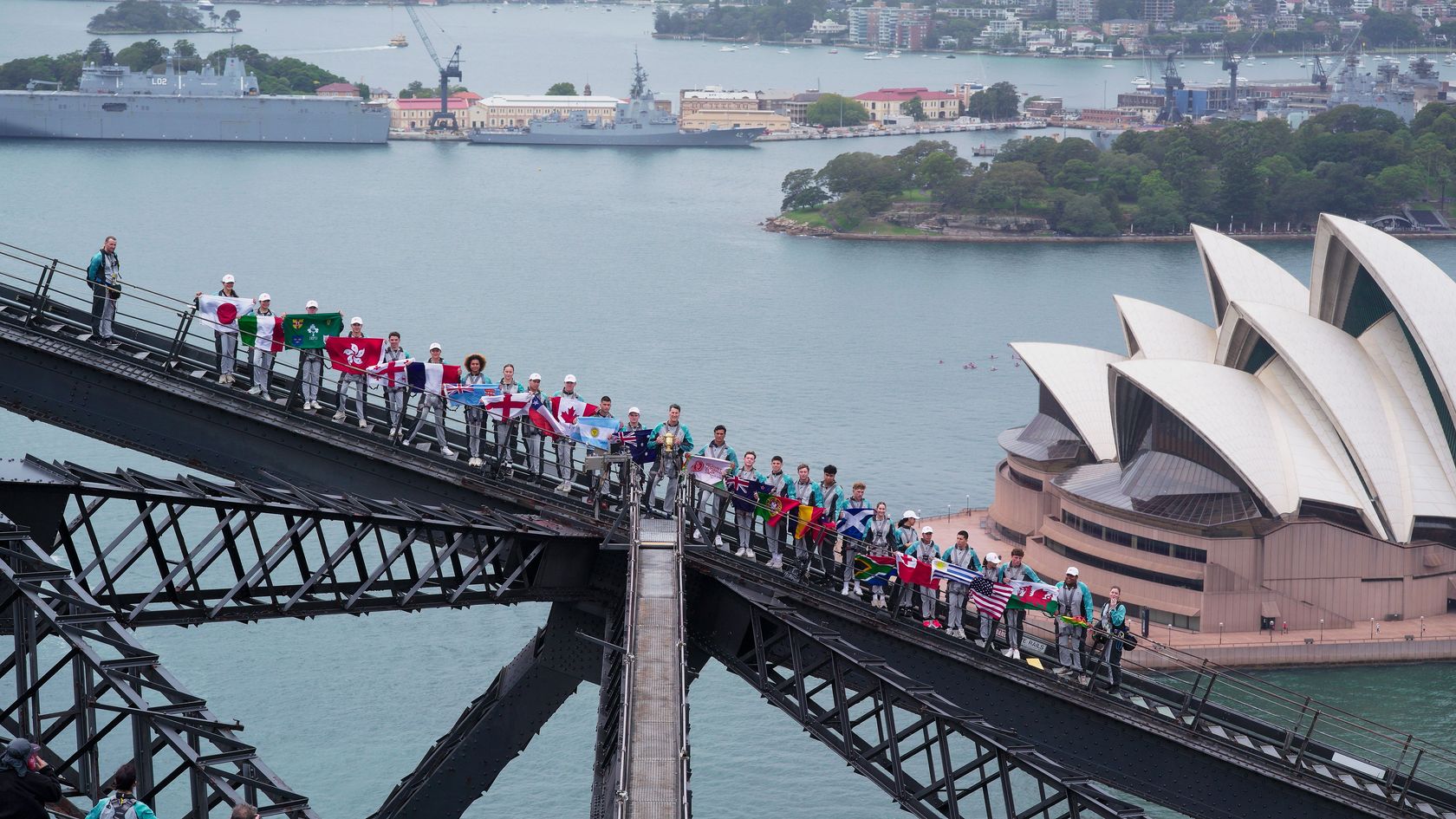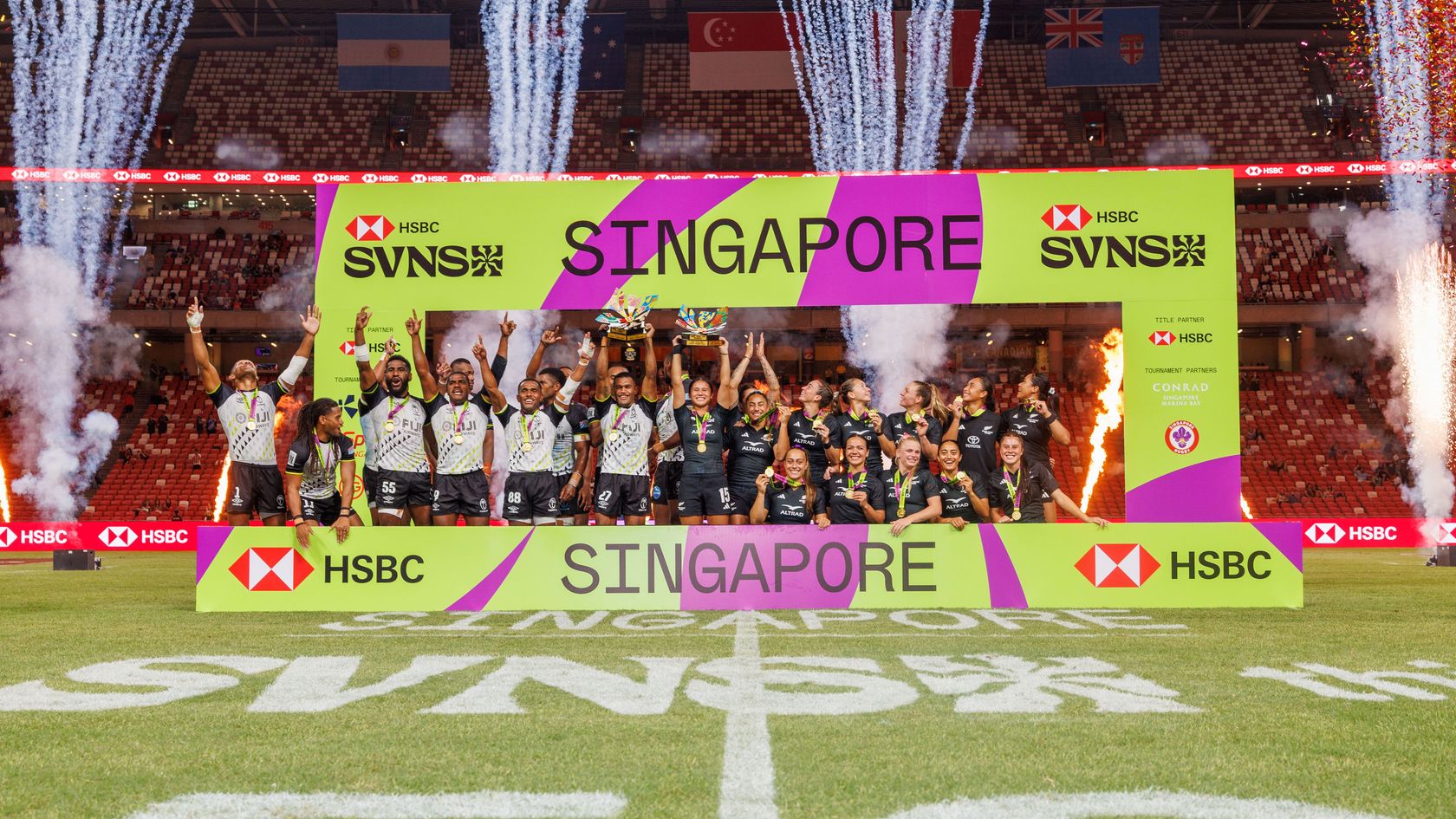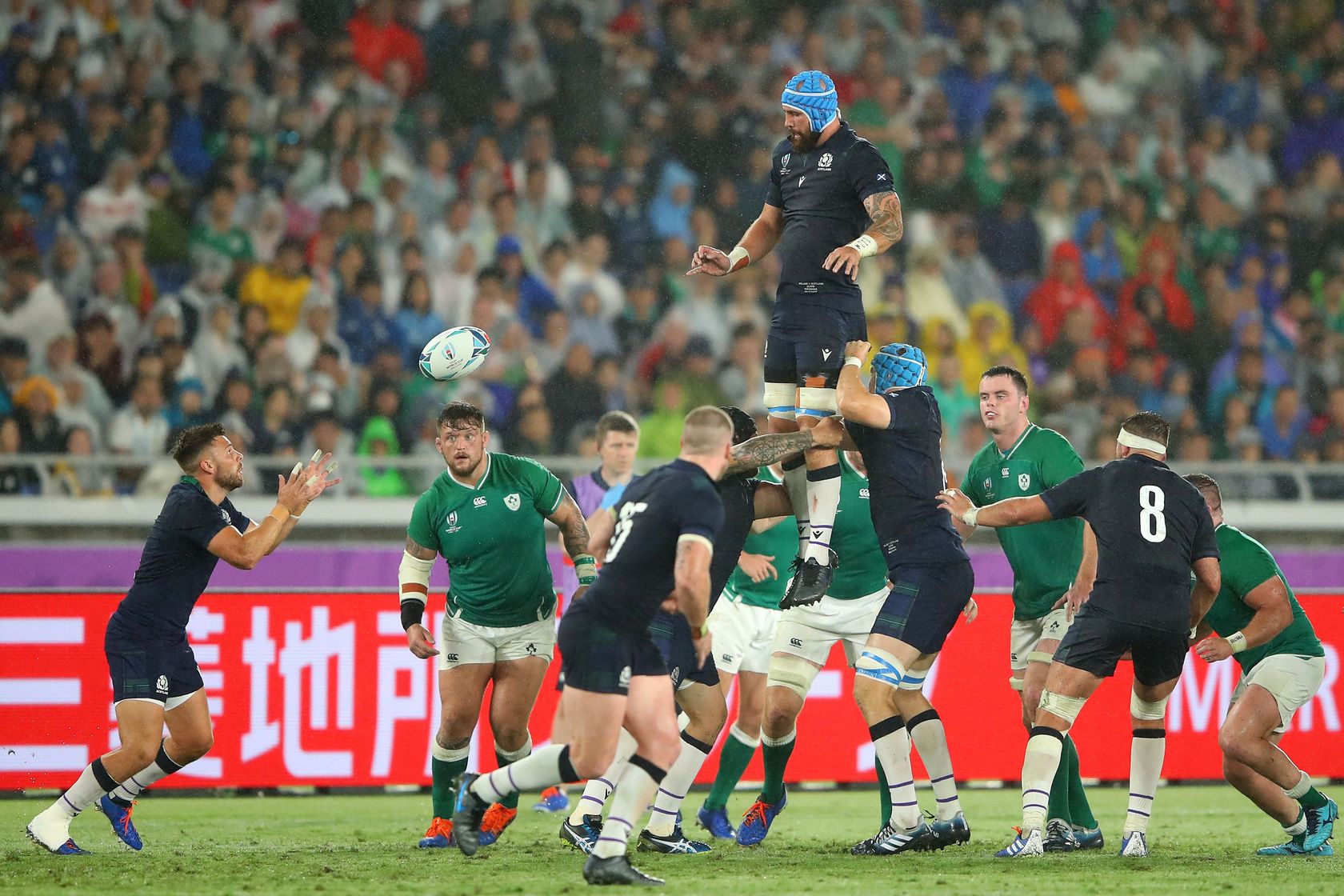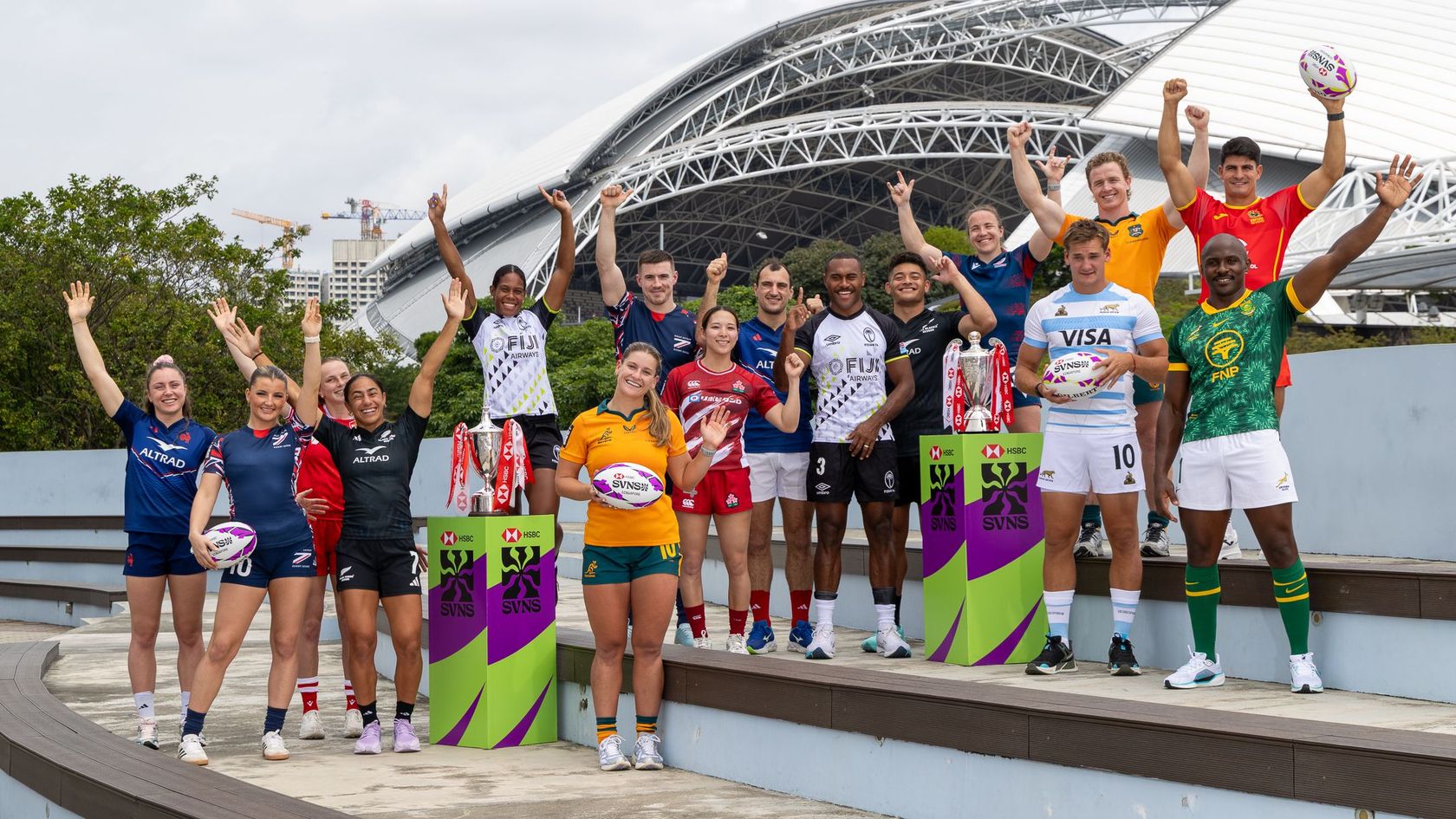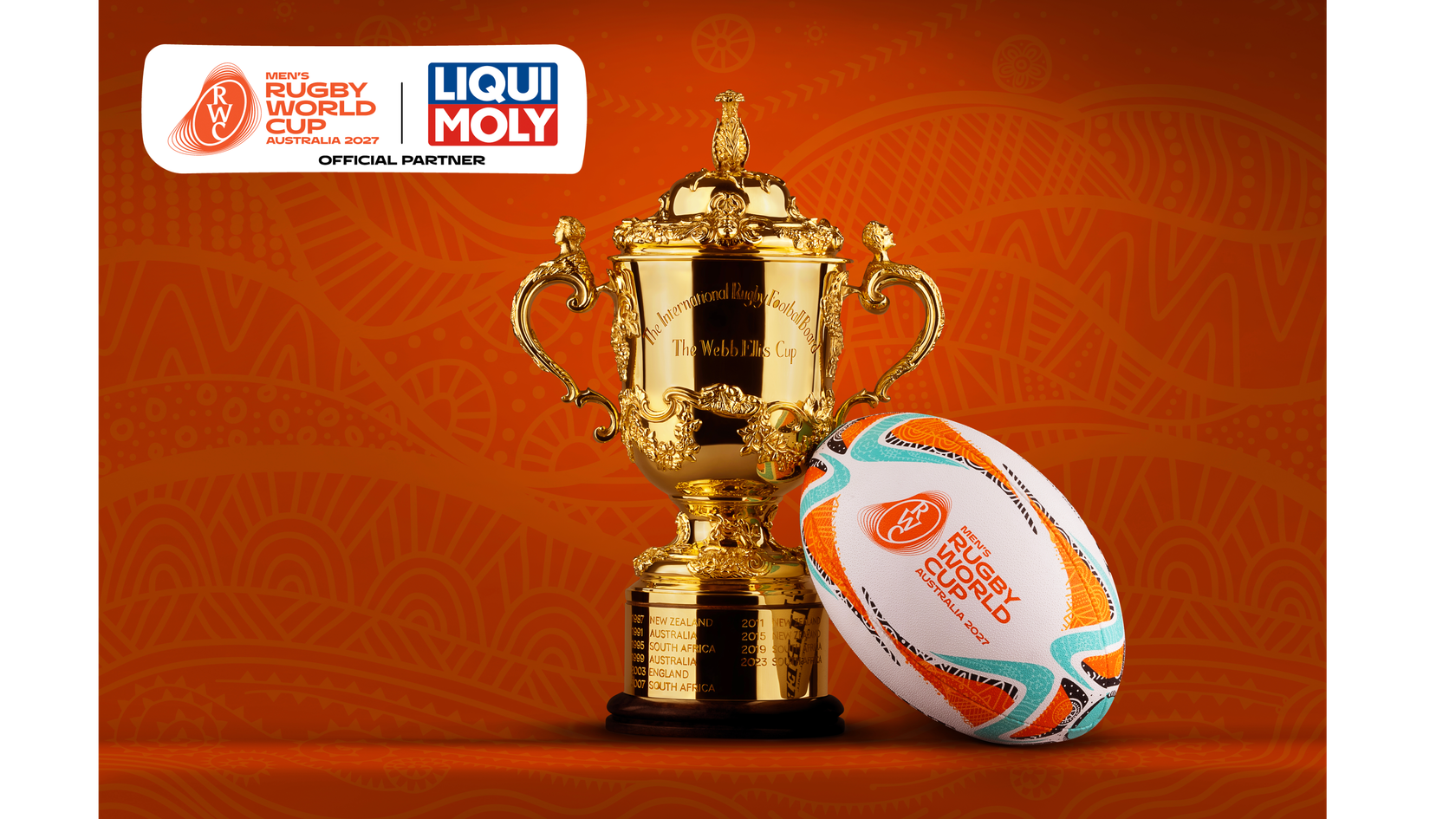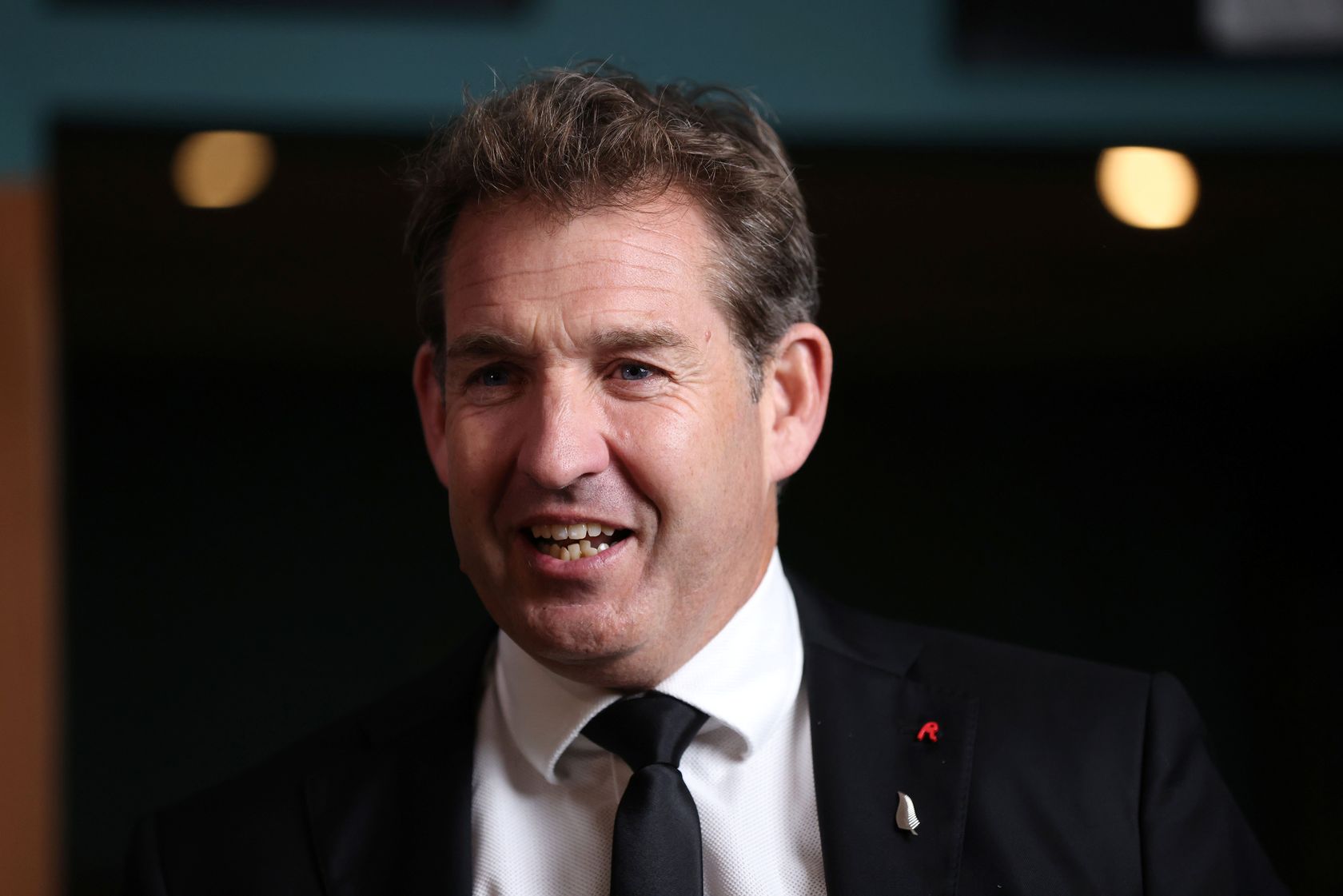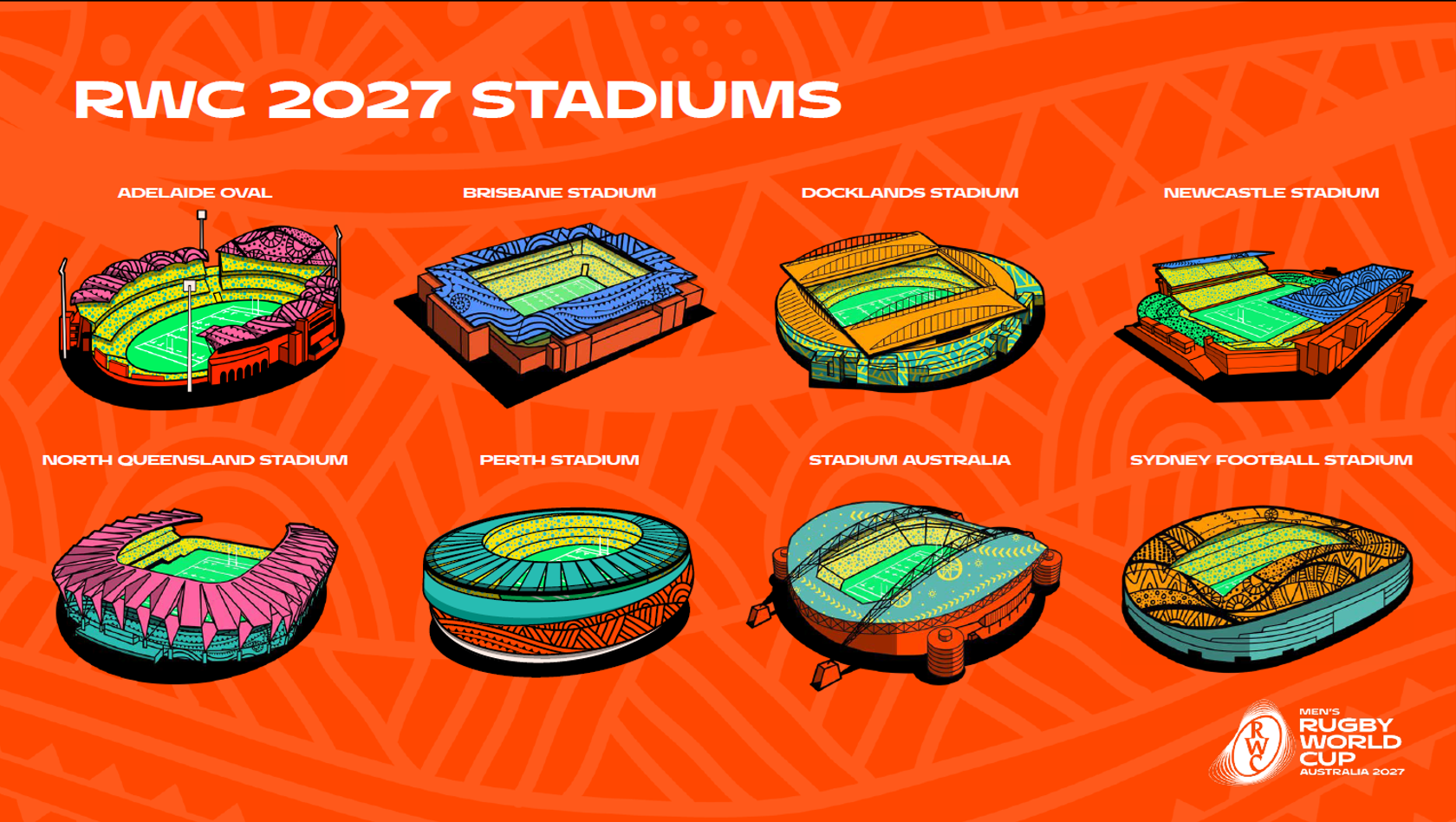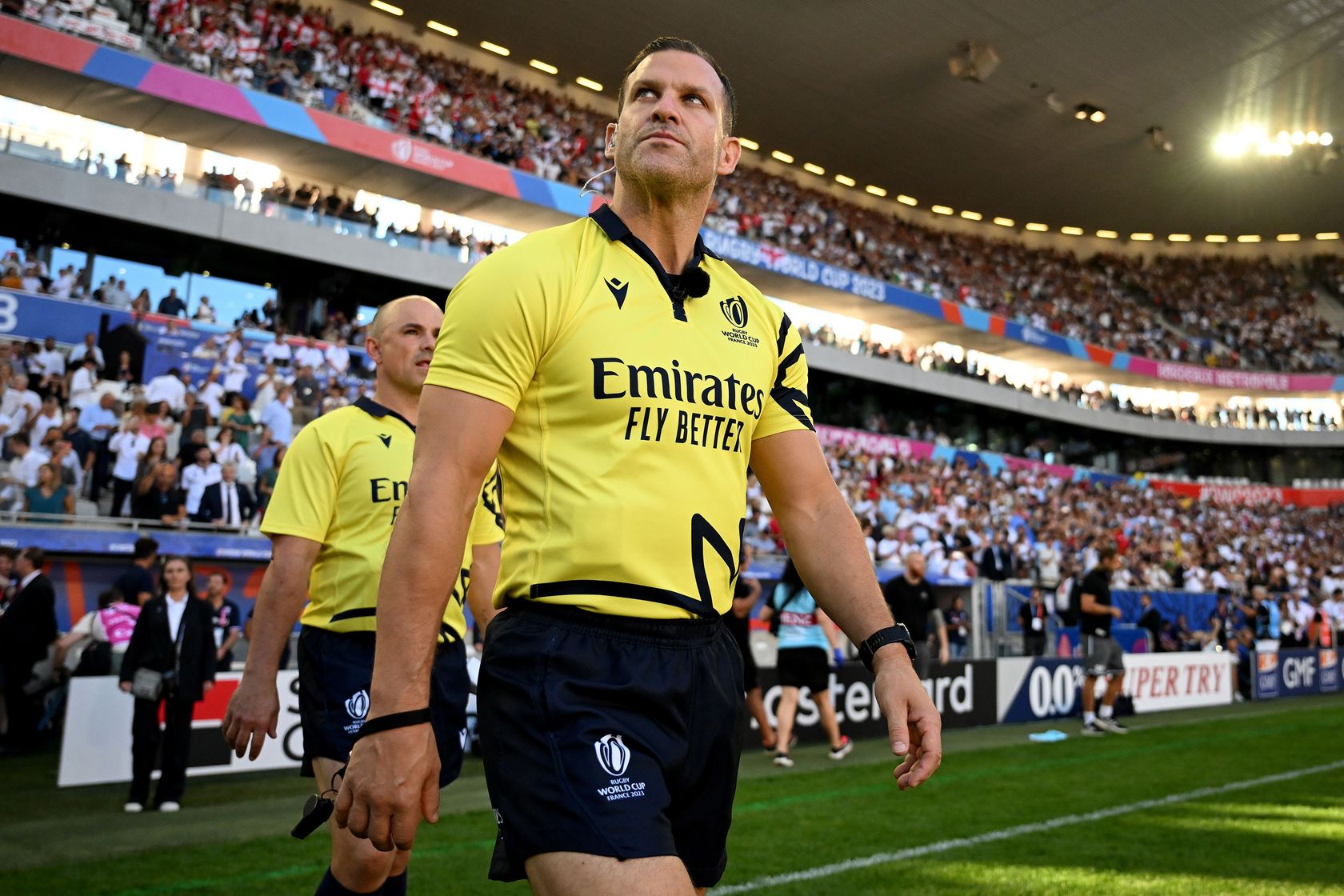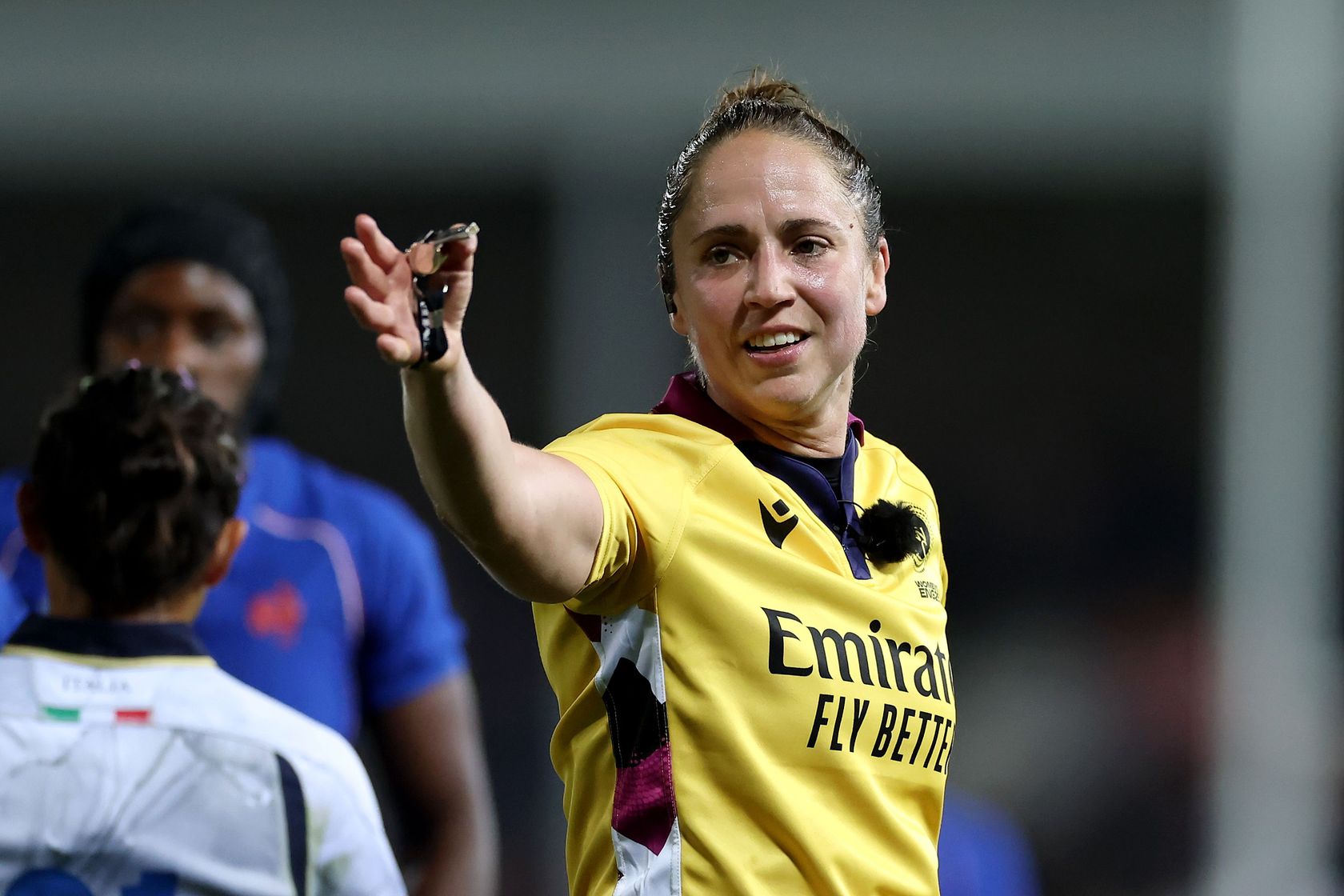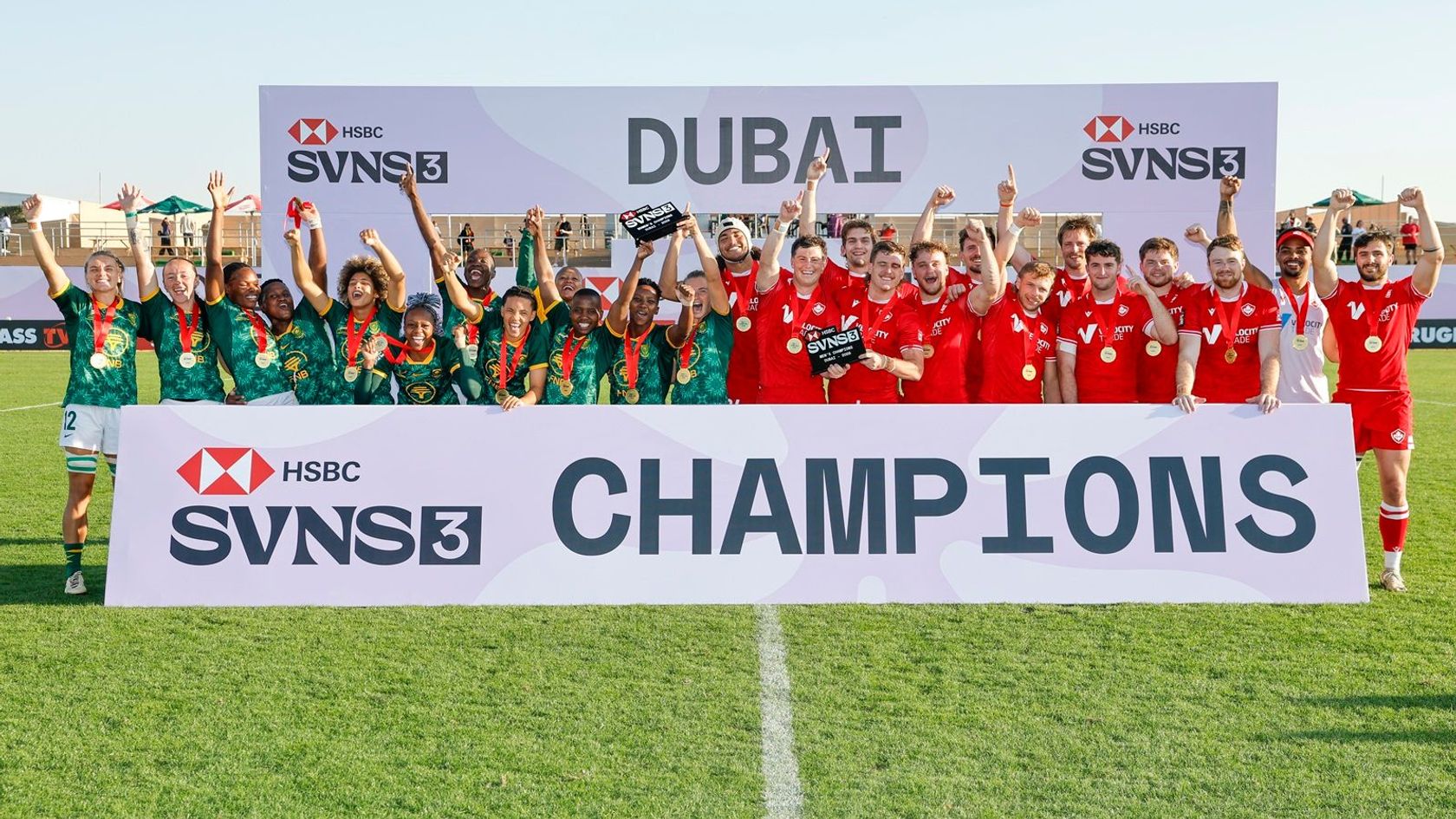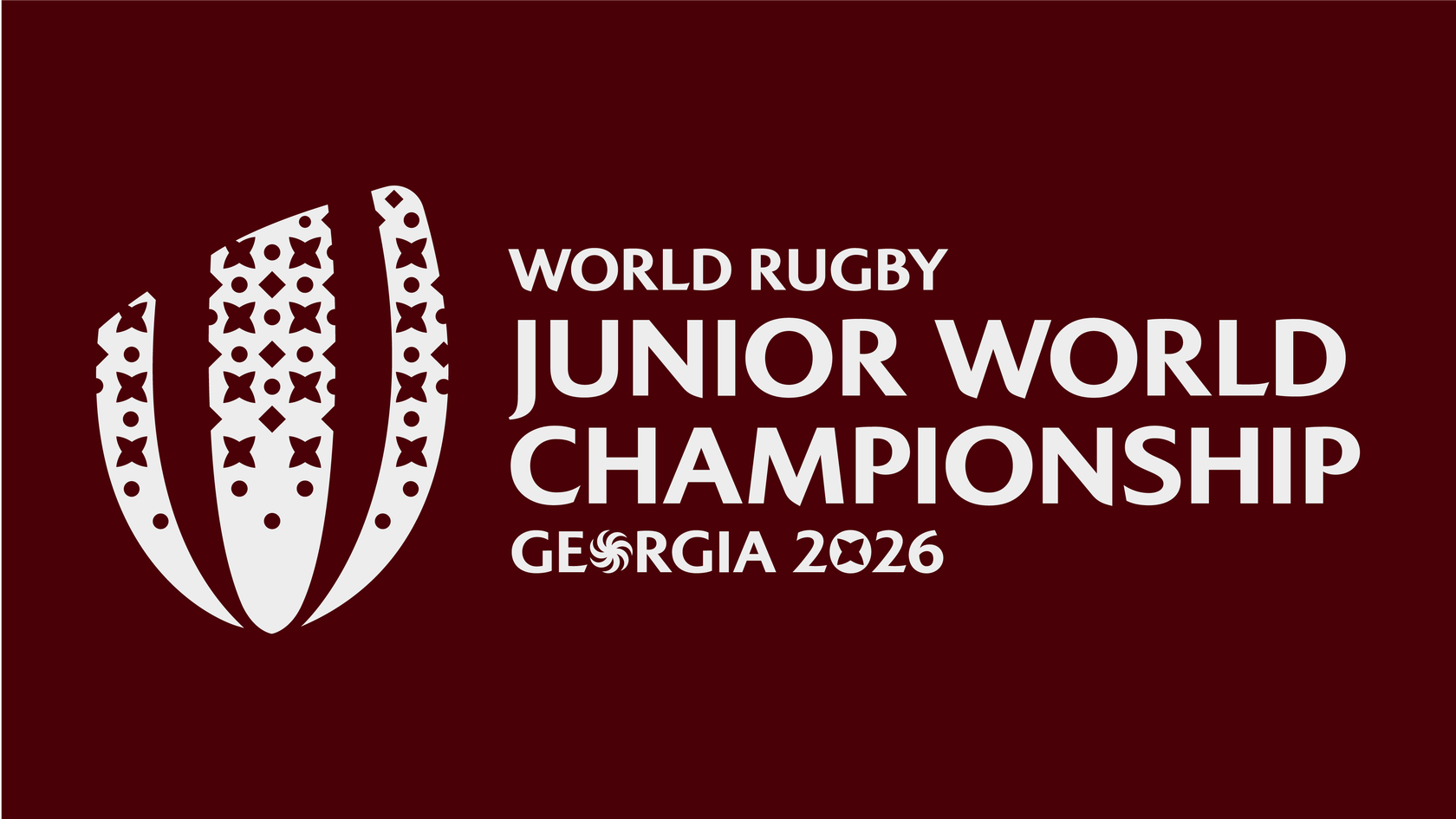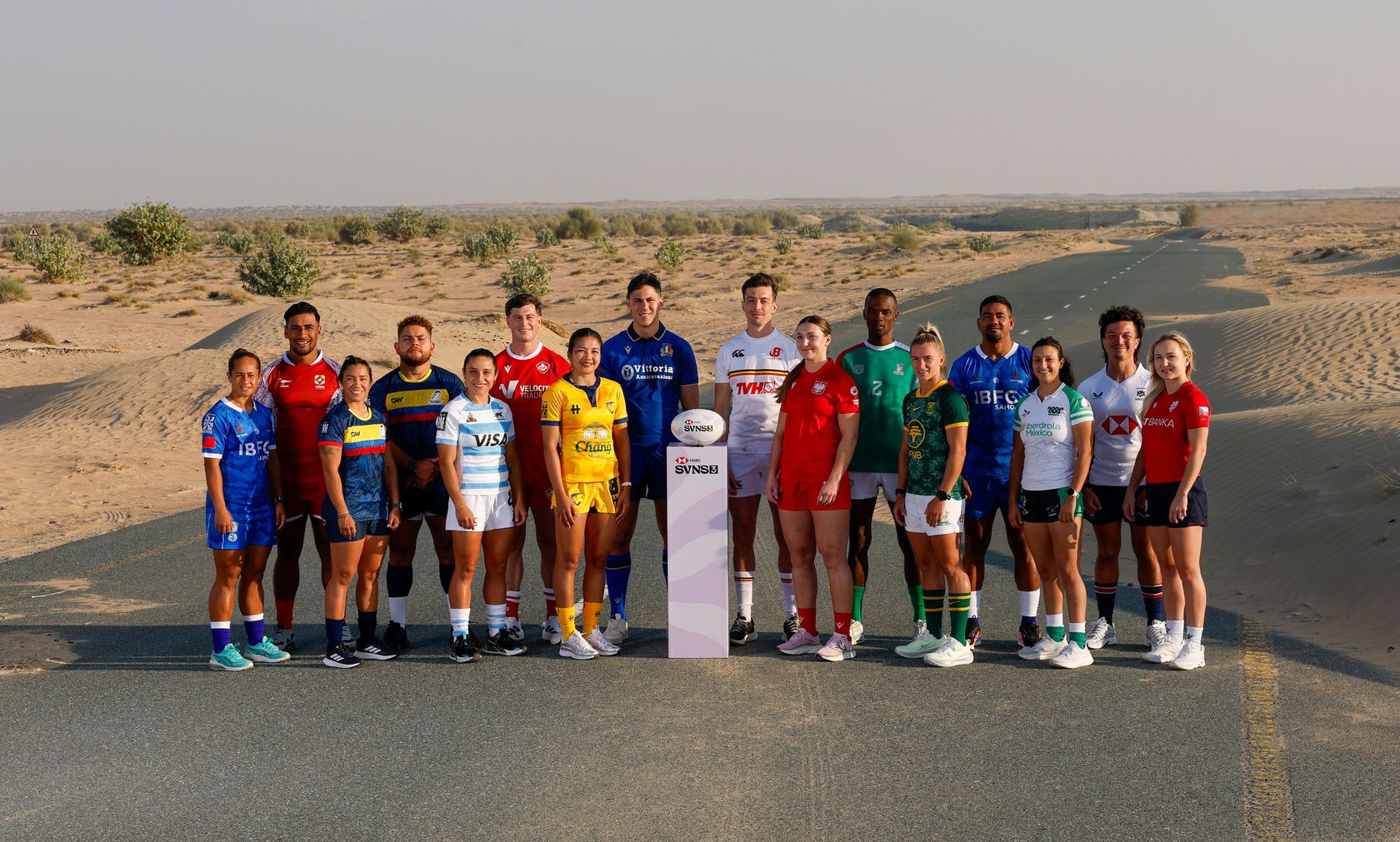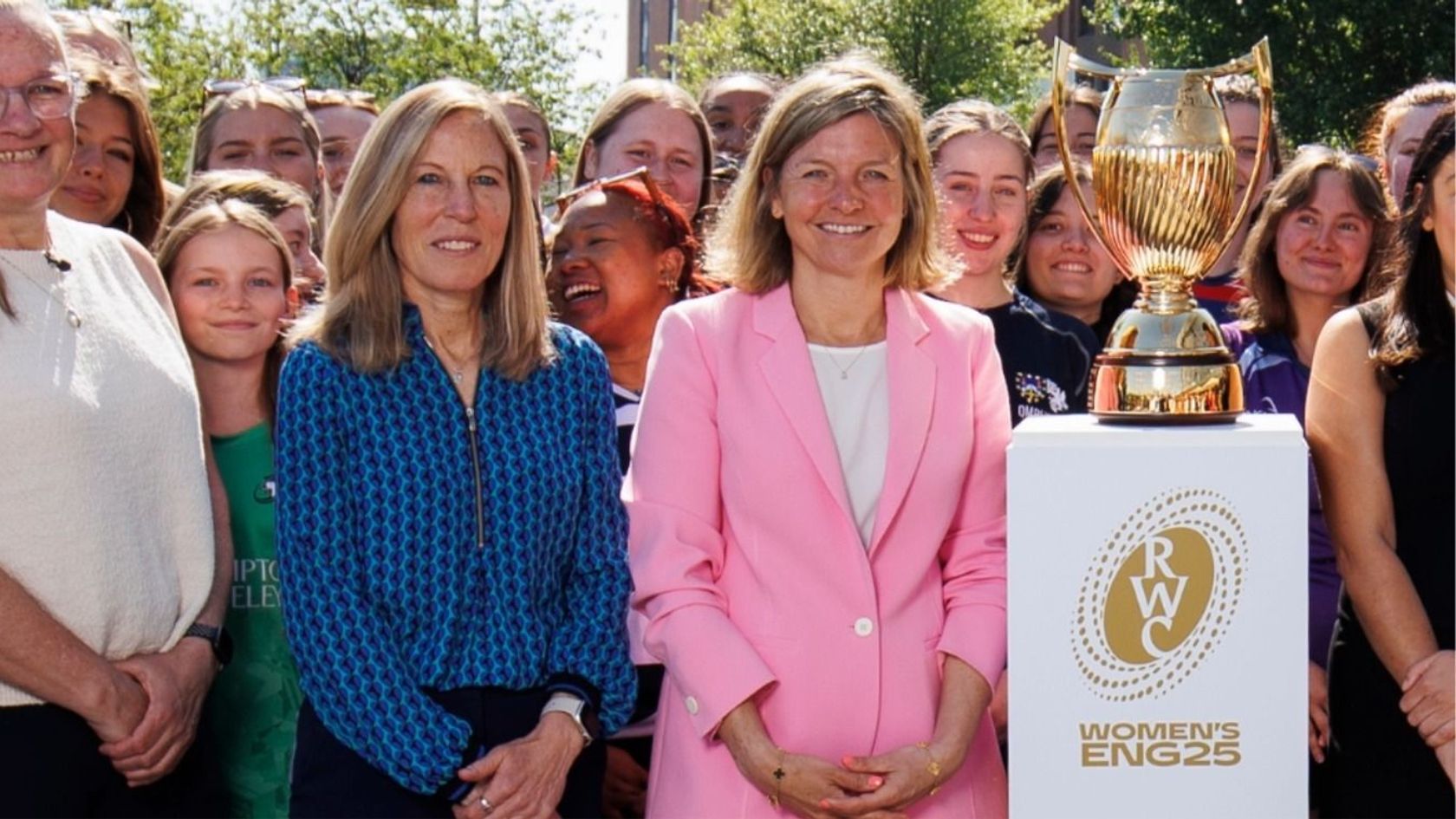Latest
-
![]()
HSBC SVNS New Zealand and South Africa add Perth gold to their HSBC SVNS collections
Black Ferns Sevens beat Australia in Perth to claim their third HSBC SVNS title of the season, while Blitzboks hang tough to win a physical encounter with Fiji for their second.
-
![]()
Media release Watch LIVE international sevens and 15s rugby on RugbyPass TV this February
RugbyPass TV (online and FAST) is the home of world-class rugby this February, delivering a blockbuster line-up of LIVE international sevens and 15s, available FREE to fans in select territories.
-
![]()
SVNS STRENGTH STYLED: HSBC SVNS introduces Hard as Nails ahead of Perth weekend
HSBC SVNS kicks off on Saturday, 7 February with World Rugby marking the occasion with the launch of 'Hard as Nails'. Celebrating style, strength and self-expression, players are set to showcase bespoke nail polish alongside the athleticism, resilience and physicality on display throughout the tournament.
-
![]()
SVNS HSBC SVNS action set to heat up in Perth
The HSBC SVNS spotlight turns to Perth this week as the world’s best sevens sides arrive in Western Australia. Australia’s women return to familiar turf, looking to defend their Perth crown and contend for the top spot on the SVNS league standings.
-
![]()
RWC 2027 Men’s Rugby World Cup 2027 schedule revealed with first tickets available from 18 February
The match schedule and ticket prices for Men’s Rugby World Cup Australia 2027 have been revealed, confirming dates, venues, and kick-off times for all 52 tournament matches. Fans and teams can now start planning their Rugby World Cup journey to Australia, with first tickets available from 18 February for registered fans in the exclusive Presale.
-
SVNS HSBC SVNS: Fiji and New Zealand claim Singapore titles
Fiji men's team reign supreme against France, while the Black Ferns Sevens overpower old adversaries Australia in Singapore.
-
![]()
RWC 2027 Mitsubishi Estate becomes Official Supporter of Men’s Rugby World Cup 2027
World Rugby today announced Mitsubishi Estate Co., Ltd. as an Official Supporter of Men’s Rugby World Cup 2027, further strengthening the tournament’s growing commercial family ahead of its return to Australia from 1 October to 13 November 2027.
-
![]()
HSBC SVNS Table positions at stake as HSBC SVNS Series heads to Singapore
The new-look HSBC SVNS Series arrives in Singapore this weekend for the third round of the season, with all 16 teams across the men’s and women’s competitions vying for crucial league points ahead of the three-tournament Championship later this year.
-
![]()
RWC 2027 World Rugby announces LIQUI MOLY as Official Partner of Rugby World Cups 2027 and 2029
World Rugby has today announced LIQUI MOLY as an Official Partner and the Official Motor Lubricants Partner of Men’s Rugby World Cup 2027 and Women’s Rugby World Cup 2029, both to be hosted in Australia. The multi‑event agreement strengthens World Rugby’s growing commercial family and aligns the sport with one of the world’s leading motor oil and additive specialists.
-
![]()
Media release World Rugby appoints Mark Robinson as Chief of Rugby
Former New Zealand Rugby Chief Executive Mark Robinson is to join World Rugby in May as its new Chief of Rugby.
-
![]()
World Rugby Charlotte Samuelson to step down as World Rugby Chief Operating Officer
World Rugby can confirm that Charlotte Samuelson will be stepping down as Chief Operating Officer at the end of January 2026.
-
![]()
RWC 2027 Eight state-of-the-art venues across Australia to host Men’s Rugby World Cup 2027
Men’s Rugby World Cup 2027 took an exciting step forward today with the announcement of the eight world-class stadiums that will host matches across seven Australian cities during the tournament.
-
![]()
Partnerships World Rugby extends official apparel partnership with Macron to 2029
World Rugby has confirmed the extension of its official apparel partnership with Macron through to 2029, reinforcing a collaboration in place since 2022 and highlighting a shared focus on quality, performance and innovation across the international game.
-
![]()
Match officials Sara Cox calls time on her international referee career
World Rugby Chair Brett Robinson has led the tributes to England’s Sara Cox, who today announced her retirement from refereeing on the international stage.
-
![]()
HSBC SVNS South Africa and Canada claim HSBC SVNS 3 titles in Dubai
Both South Africa’s women and Canada’s men’s sevens teams head into the HSBC SVNS 2 series as champions with South Africa completing an unbeaten Dubai campaign by defeating Argentina in the women’s final and Canada overcoming Belgium to claim the men’s title.
-
![]()
JWC 2026 A new identity for age-grade rugby: Junior World Championship set for Georgia in 2026
The dates, pools and match schedule have been confirmed for the expanded 16-team tournament that will be known as the World Rugby Junior World Championship from 2026.
-
Sevens Rugby fans to show up for LA28 as ticket registrations open
After thrilling fans at Paris 2024, the fastest, most electrifying game in the Olympic programme returns to Los Angeles for LA28. Fans can now register for the LA28 Olympic Games ticket draw to secure their chance to see the biggest stars of rugby sevens in action.
-
![]()
HSBC SVNS Sweet dreams to be made in Dubai at HSBC SVNS 3
HSBC SVNS 3 brings sevens rugby back to Dubai less than two months after the top-tier HSBC SVNS Series kicked off at the Sevens Stadium. This weekend, eight men’s and eight women’s teams will take to the field, aiming to make their mark and move closer to the HSBC SVNS Championship later this year.
-
![]()
Rugby World Cup 2025 Success of Women’s Rugby World Cup England 2025 recognised as Chair Gill Whitehead receives OBE and Managing Director Sarah Massey made an MBE
Chair of Women’s Rugby World Cup England 2025 Gill Whithead has received the Order of the British Empire (OBE) and Managing Director Sarah Massey the Member of the British Empire (MBE) in the prestigious King’s New Year Honours List, for “services to women’s rugby”. The British honours list recognises those who have made an outstanding contribution to society.
-
![]()
RWC 2027 The new Men's Rugby World Cup draw format explained
The Rugby World Cup 2027 Draw took place in Sydney, on 3 December, to determine the line-ups of the six pools of four.



